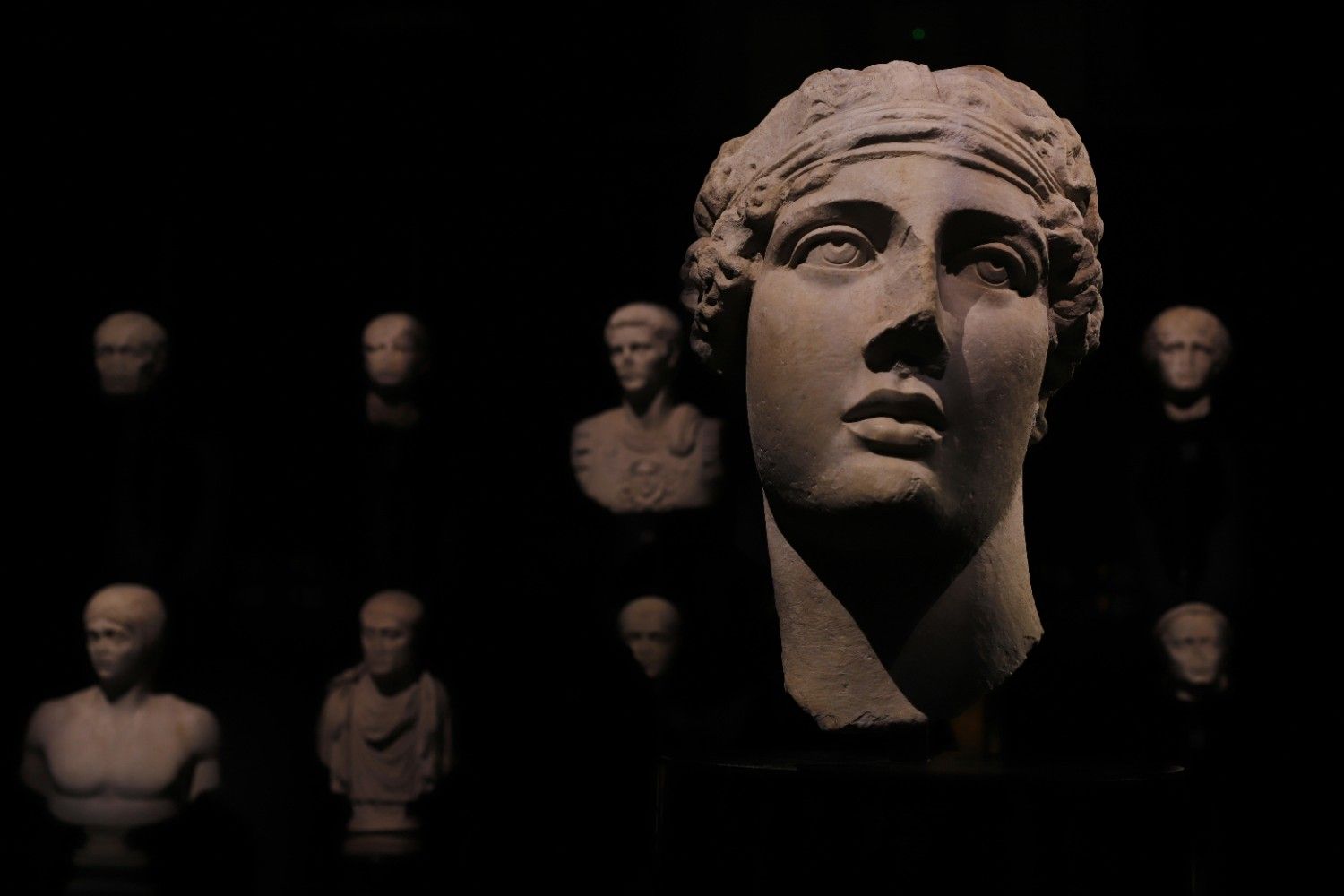For millennia, humanity's greatest minds have wrestled with a single, foundational question: What does it mean to be happy? We chase it in our careers, our relationships, and our possessions, yet a truly satisfying and "lasting" happiness often remains elusive. Is happiness a fleeting feeling of pleasure, a state of virtuous flourishing, a life of tranquil contentment, or something we must create for ourselves in a world devoid of inherent meaning? This question is not merely academic; the answer we choose, consciously or not, becomes the blueprint for our lives. This article is a journey through the history of thought on this very topic, exploring the diverse and often conflicting answers that philosophy provides, offering not a single solution, but a map of the different paths to a life well-lived
Key Points
- Philosophy does not offer one single definition of happiness, but a spectrum of ideas ranging from pleasure and virtue to contentment and created meaning (1).
- Ancient Greek philosophy presents a key debate: "Hedonism" (Epicurus), which defines happiness as the pursuit of pleasure and avoidance of pain, versus "Eudaimonia" (Aristotle, Stoics), which defines it as human flourishing through virtuous activity (2).
- Eastern philosophy, particularly Buddhism, offers a different perspective, viewing true happiness not as the gaining of something, but as the "cessation of suffering" (Nirvana) achieved by ending attachment and craving (3).
- Utilitarianism (Bentham, Mill) shifts the focus from the individual to the collective, defining a moral life, and by extension a worthwhile one, as that which creates "the greatest happiness for the greatest number" (4).
- Existentialism (Sartre, Camus) challenges the entire premise, arguing that in a meaningless universe, we must create our "own" purpose, and a worthwhile life is one lived authentically in defiance of this absurdity, which may not always equate to "feeling happy" (5).
Introduction: The Blueprint for a Life
For millennia, humanity's greatest minds have wrestled with a single, foundational question: What does it mean to be happy? It is the implicit goal of nearly every human endeavor. We chase it in our careers, our relationships, and our possessions, yet a truly satisfying and "lasting" happiness often remains elusive. Is happiness a fleeting feeling of pleasure, a state of virtuous flourishing, a life of tranquil contentment, or something we must create for ourselves in a world devoid of inherent meaning? This question is not merely academic; the answer we choose, consciously or not, becomes the blueprint for our lives.
Unlike modern self,help, which often provides prescriptive formulas, philosophy offers a richer, more complex exploration. It forces us to first define our terms. Before we can find happiness, we must decide what it "is" we are looking for. Is it a psychological state or the quality of a whole life? Is it about feeling good, or being good? This article is a journey through the history of thought on this very topic. We will explore the diverse and often conflicting answers that philosophy provides, offering not a single solution, but a map of the different paths to a life well,lived.
This exploration, by Dr. Eleanor Vance, a philosopher specializing in ethics and well,being, will guide you through the major schools of thought, from the pleasure gardens of Epicurus to the stoic resolve of Marcus Aurelius, and from the compassionate detachment of the Buddha to the defiant freedom of the Existentialists. By understanding these blueprints, we can more consciously choose how to build our own lives. For deeper dives into specific philosophies, you may find our posts on Stoicism and Existentialism particularly relevant (6). All information is current as of September 13, 2025, at 08:35 PM GMT.
The Ancient Greek Debate: Pleasure vs. Flourishing
The Western philosophical tradition on happiness began in earnest in Ancient Greece, where a central debate emerged that continues to shape our thinking today. It is the fundamental conflict between a life focused on feeling good (Hedonism) and a life focused on being good (Eudaimonia).
Hedonism: The Pursuit of Pleasure
The most famous proponent of hedonism was Epicurus (341,270 BC). At first glance, the term "hedonism" conjures images of wild indulgence and sensory excess. But Epicurean hedonism was far more sophisticated. Epicurus argued that a happy life is a "pleasant" life, but he defined pleasure not as a wild frenzy of positive sensations, but as the "absence of pain and turmoil" (ataraxia).
For Epicurus, the highest pleasures were not physical, but mental. They were the simple joys: the pleasure of friendship, the pleasure of learning, and the pleasure of living a tranquil life free from fear, especially the fear of death and the gods. He advised a simple life, believing that our most intense desires for wealth, fame, or power often lead to more anxiety than pleasure. The key was to learn to appreciate simple things and to cultivate a mindset of gratitude. So, for Epicurus, a worthwhile life was a calm, contemplative one, surrounded by good friends and free from unnecessary desires.
Eudaimonia: The Life of Human Flourishing
Aristotle (384,322 BC) offered a powerful alternative. He found the idea of pleasure being the ultimate good to be simplistic, arguing that a life fit for cattle could not be the highest good for a human being. He proposed the concept of "Eudaimonia," a term often translated as "happiness" but better understood as "human flourishing" or "living well and doing well."
For Aristotle, Eudaimonia is not a feeling; it is an "activity." It is the activity of the soul in accordance with "virtue." He argued that everything has a function or purpose (a telos). The function of a knife is to cut, and a good knife is one that cuts well. The unique function of a human being, he claimed, is our capacity for reason. Therefore, a good "human life," a eudaimonic life, is one lived in accordance with reason, which is to say, a life of virtue.
This means that happiness is not something you "feel" from moment to moment, but something you "achieve" over the course of a whole life by consistently acting with courage, temperance, justice, and wisdom. For Aristotle, a person who is living a debauched but pleasurable life is not truly happy, because they are not fulfilling their human potential. A worthwhile life is a virtuous, meaningful one.
The Stoics, like Seneca and Marcus Aurelius, built upon this idea, arguing that virtue is the "only" good. For a Stoic, external events, like health, wealth, or reputation, are indifferent. The only thing that matters is our virtuous response to those events. True happiness, or tranquility, comes from living in accordance with nature and focusing only on what we can control: our own thoughts and actions.
The Eastern Perspective: Happiness as Contentment
Moving away from the West, Eastern philosophy, particularly Buddhism, offers a radically different framework. While the Greek models are often about "attaining" something (pleasure or virtue), the Buddhist model is about "letting go."
Buddhism: The Cessation of Suffering
The core of Buddhist teaching, as laid out in the Four Noble Truths, is that life is characterized by suffering ("dukkha"). This suffering, the Buddha taught, originates from our "craving" and "attachment" to things being a certain way. We crave pleasure, we crave praise, and we are attached to our health, our loved ones, and our own existence. Because everything is impermanent, this craving and attachment inevitably leads to suffering when we lose what we cling to, or fail to get what we desire.
Therefore, happiness is not found by satisfying our cravings, which is like trying to quench thirst by drinking saltwater. True, lasting happiness, or "Nirvana," is the "cessation of suffering," which is achieved by extinguishing the fires of craving and attachment. This is done through the practice of the Eightfold Path, which includes ethical conduct, mental discipline (meditation), and wisdom.
In this view, a worthwhile life is not one of maximizing pleasure or even achieving great things. It is one of cultivating inner peace, compassion, and wisdom. It is a life of "contentment," free from the violent swings of emotional highs and lows, rooted in a deep understanding of the impermanent nature of reality.
Modern Philosophy: Collective Good and Individual Meaning
As philosophy moved into the modern era, the focus shifted from individual virtue to broader social contexts and, later, to a radical form of individual freedom.
Utilitarianism: The Greatest Good for the Greatest Number
In the 18th and 19th centuries, philosophers like Jeremy Bentham and John Stuart Mill proposed the theory of "Utilitarianism." This ethical framework argues that the most moral action is the one that maximizes "utility," which they defined as maximizing happiness and minimizing suffering for the greatest number of people.
Here, the concept of a "worthwhile life" takes on a social and political dimension. It is not just about "my" happiness, but about the happiness of "everyone." A good life, from a utilitarian perspective, is one spent contributing to the overall well,being of society. While they subscribed to a form of hedonism (defining happiness as pleasure and the absence of pain), their focus was external. A doctor who works in a low,income clinic and brings health and relief to hundreds of people is living a more worthwhile life than a billionaire who spends their days in idle, solitary pleasure, because the doctor's actions produce a greater sum total of happiness in the world.
Existentialism: The Creation of Meaning
The Existentialists of the 20th century, like Jean,Paul Sartre and Albert Camus, threw a wrench into the entire discussion. They began with a stark premise: the universe is inherently meaningless. There is no pre,ordained purpose, no divine plan, and no "human nature" that dictates how we ought to live. We are, as Sartre famously put it, "condemned to be free."
In this view, the search for a pre,existing "formula" for happiness is doomed to fail. There is no blueprint to find. Instead, we must "create" our own meaning and our own values through the choices we make. A worthwhile life is an "authentic" one, a life in which we take full responsibility for our freedom and live in accordance with the values we have created for ourselves. This might lead to feelings of happiness, but it could just as easily lead to anxiety, struggle, and what the existentialists called "anguish." For an existentialist, a life of comfortable, unexamined pleasure is a life lived in "bad faith." It is a wasted life. A truly worthwhile life is one of struggle, passion, and commitment to a self,chosen project, a defiant creation of meaning in a meaningless world.
Comparison: Philosophical Blueprints for a Worthwhile Life
| Philosophical School | Definition of Happiness | What Makes Life Worthwhile? | Key Proponents |
|---|---|---|---|
| Hedonism | Pleasure, defined as the absence of physical and mental pain (ataraxia). | Living a tranquil life with simple pleasures, good friends, and minimal desire. | Epicurus |
| Eudaimonism | Human flourishing; an activity of the soul in accordance with virtue. | Living a life of moral and intellectual excellence, fulfilling one's human potential. | Aristotle, The Stoics |
| Buddhism | Contentment; the cessation of suffering (Nirvana) by extinguishing craving. | Cultivating inner peace, compassion, and wisdom through ethical living and meditation. | Siddhartha Gautama |
| Utilitarianism | The greatest amount of pleasure for the greatest number of people. | Contributing to the overall well,being of society and reducing suffering in the world. | Bentham, Mill |
| Existentialism | Not the primary goal; a potential byproduct of a meaningful life. | Authentically creating your own meaning and values in a meaningless universe. | Sartre, Camus |
Conclusion: Choosing Your Own Blueprint
So, what makes a life worthwhile? Philosophy offers no single, easy answer. Instead, it provides a rich tapestry of possibilities. Is your goal a life of tranquil pleasure, a life of virtuous striving, a life of compassionate contentment, a life dedicated to the good of others, or a life of authentic self,creation? Perhaps the most profound insight is that you have the freedom, and the responsibility, to choose.
These ancient and modern ideas are not just historical artifacts; they are live options. We see echoes of Eudaimonia in modern positive psychology's focus on "flow" and "purpose." We see Buddhism in the rise of mindfulness and meditation. We see Utilitarianism in effective altruism movements. And we see Existentialism in every individual's personal search for meaning.
The ultimate value of this philosophical journey is not to find the "one true path" to happiness, but to equip ourselves with a better map. By understanding the different destinations, we can ask ourselves the most important question of all with greater clarity: In the one, precious life I have, what is the journey I truly want to take?
References
- Stanford Encyclopedia of Philosophy - Happiness
- Coursera - Eudaimonia vs. Hedonism: Two Ways to a Good Life
- Tricycle: The Buddhist Review - The Four Noble Truths
- Utilitarianism.com - Utilitarianism Resources
- The Collector - Existentialism: The Search for Meaning in a Meaningless World
- Simply Psychology - What Is The Meaning of Life According to Philosophy & Psychology








